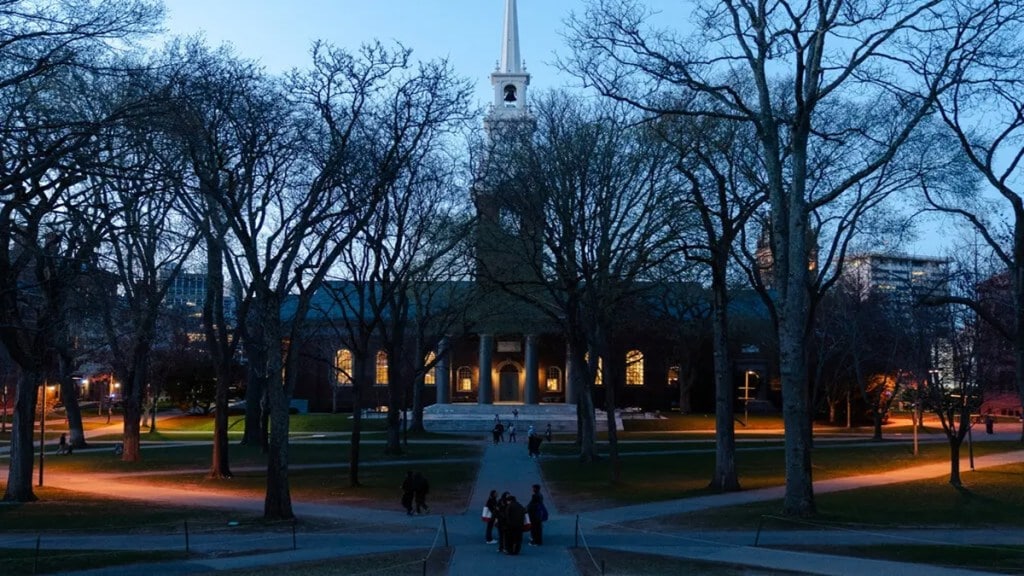On May 22, 2025, the US authorities gave 72 hours to the university to comply with six conditions or else have their SEVP status revoked. That means that without the Student Exchange and Visitor Program (SEV) certification, Harvard will no longer be able to host international students, and the status of current students will be uncertain.
However, international students, including Indians, who are studying at Harvard may heave a sigh of relief.
On the same day, a federal judge granted Harvard a temporary restraining order in its lawsuit to prevent the Trump administration from revoking its ability to admit overseas students.
According to United States District Judge Allison D. Burroughs, if the Trump administration moves forward, Harvard “will sustain immediate and irreparable injury before there is an opportunity to hear from all parties.”
Impact on Students
However, students should be aware that this is simply a temporary restraining order, and the courts have yet to issue a final verdict on the matter.
If Harvard’s SEVP revocation finally happens, it could strip thousands of student visa holders of their legal status overnight, rendering them and more than 300 dependents subject to deportation.
The Harvard classroom will no longer be accessible to students who have already enrolled, paid tuition, obtained their F-1 or J-1 study visas, and purchased their flight tickets.
Existing students would have no choice but to return home or transfer to another SEVP-certified university. According to the lawsuit filed by Harvard, the university would lose 25 percent of its total students.
Even if Harvard wins the final ruling, the recent Harvard episode could deter international students from applying and enrolling in the future. Since the temporary restraining order is only in effect for a few days, international students will not be able to confidently make long-term plans for the future because their status will remain uncertain.
“Given that the U.S. remains the most preferred destination for Indian students, with over 337,630 pursuing higher education there in 2024 (as per MEA) — this move could trigger wider uncertainty, not just at Harvard but across institutions that welcome global talent,” says Akshay Chaturvedi, Founder & CEO of Leverage Edu
What’s Next for Harvard and Students
As of now, the 72-hour deadline does not stand as the temporary restraining order is in effect. A hearing has been set for Thursday, May 29, to determine whether the temporary order should be extended. Harvard would need to submit a preliminary injunction to prevent the DHS directive from taking effect once the TRO expires.
Under the terms of the ruling, the DHS is prohibited from executing the May 22 decision to deprive Harvard of its SEVP status. Also, Harvard is no longer legally required to turn over documents and evidence requested by the DHS.
“The United States remains a top choice for Indian students, thanks to its world-class universities, research opportunities, and professional pathways. However, developments like this may prompt students and families to more carefully weigh their options, especially those prioritizing policy consistency and transparency.
At Harvard alone, 788 Indian students could potentially be impacted by this decision. It’s important to recognize that international students contribute more than just tuition; they bring global perspectives that enrich classrooms and research.
According to University Living’s Indian Student Mobility Report (ISMR) 2024, Indian students are projected to spend USD 17.4 billion annually, including USD 10.1 billion on academic expenses alone. Ensuring clear, stable policy frameworks will help maintain the U.S.’s position as a welcoming and reliable destination for global talent,” says Saurabh Arora, Founder and CEO, University Living.
The Timeline
The recent tussle started on April 16, 2025, when the Secretary of Homeland Security, Kristi Noem, sent Harvard’s International Office (HIO) a letter criticizing Harvard for failing to condemn antisemitism. On April 30, Harvard produced that information to DHS.
On May 14, Harvard also produced additional information in response to a follow-up request from DHS.
Yet, on May 22, 2025, DHS deemed Harvard’s responses “insufficient”—without explaining why or citing any regulation with which Harvard failed to comply—and revoked Harvard’s SEVP certification “effective immediately.”
On the same day, Harvard received a temporary restraining order from the court in its lawsuit against the Trump administration, preventing the revocation of its ability to admit overseas students.
Kalpesh Banker, Managing Partner at EduShine Search Partners, says, “The revocation of the enrollment powers of Harvard University to admit foreign students came as a big blow to the Ivy League School. For Harvard, with 6,800 foreign students, constituting a quarter of its student body, this development could have long-term consequences for the University.
This has not only clouded the future enrollment of International Enrolls but also casts a shadow on the status of the current students. Besides the crises for the university and students, the development will have long-term consequences for the state of the US economy. Harvard University has students from over 100 countries, and with this de-globalised stance taken by the US authorities, the entire scenario of Global Education seems to be at a crossroads.”

